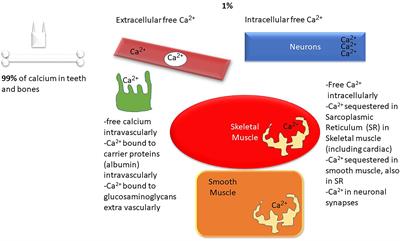EDITORIAL
Published on 24 Jun 2022
Editorial: Calcium: An Overview From Physiology to Pathological Mineralization

doi 10.3389/fendo.2022.932019
- 3,211 views
- 3 citations
8,401
Total downloads
39k
Total views and downloads
EDITORIAL
Published on 24 Jun 2022

REVIEW
Published on 01 Mar 2022

ORIGINAL RESEARCH
Published on 29 Oct 2021

ORIGINAL RESEARCH
Published on 13 Oct 2021

REVIEW
Published on 11 Aug 2021

CASE REPORT
Published on 16 Jul 2021
